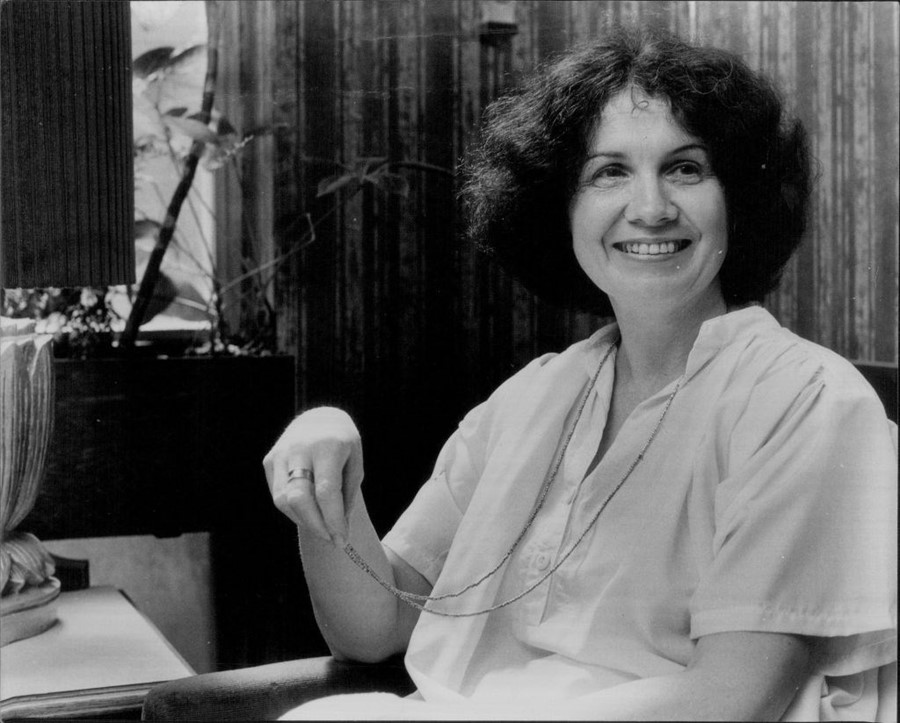Columnist and ¡Hola Papi! author JP Brammer shares a tribute to the legendary short story writer who died this week
There’s a sentence I like to share at reading events whenever I’m asked, Who’s your favourite author? Or, What’s something you’ve read that changed your life? It’s from Alice Munro’s short story Wild Swans, one in a set of stories focusing on Rose, a young girl from a small town who lives with her stepmother, a woman named Flo, with whom Rose has a complicated relationship. Helpful context: another story centering Rose is titled Royal Beatings.
Here’s the setup. Rose, who is poor, is taking a train to Toronto. This is significant, because it marks her first foray into the world on her own. She’s been given a little money, and even though the impetus for this trip is her father’s death, she finds excitement in the adult business of riding alone on a train. A man rolls a snack cart down the aisle. Rose spends some of her money on a carton of chocolate milk. She takes a sip, and discovers that it’s spoiled.
The magic of the story, and of the abbreviated version I give, and of Munro as an author, is when Rose goes in for a second sip. Then a third, then a fourth: “Rose kept taking tiny sips, unwilling to admit that something so much desired could fail her.” I remember being blown away by this sentence, by how it elucidated something central yet befuddling about the human spirit. Haven’t we all taken a second sip of sour milk, returned to something we know to be rotten, to give it another chance to fall into accord with our expectations?
People seem to recognise something in themselves from it when I share it with them.
Munro understood that people sometimes do things that defy logic. Or, rather, that people are governed by private, sentimental logics. When I describe her stories to people, it’s remarkable how ordinary they sound. It’s not that the subject matter isn’t worthy: Women in flagging relationships. Girls taking on summer jobs. Deaths in the family. The arrival of an eccentric relative.
No, it’s more that describing Munro’s stories by way of what actually happens in them doesn’t convey the sheer thrill of reading them. There’s a reason she’s called “your favourite writer’s favourite writer.” Anyone who’s ever struggled against the wall of the blank page understands the stakes of committing a thought to language: there’s always a better sequence of words, a shorter, more elegant path toward the desired effect, one that becomes more impossible to locate with every single choice the writer makes. To read Alice Munro is to read an author make the best choice, take the maximally beautiful path, over and over again.
“[Munro’s] body of work holds a ferociously human heart. So vivid, so alive is her writing that it feels, contrary to what’s been reported, that the author is alive, making observations; knowing”
I’ll never forget those early mornings and late afternoons going to and from work in New York, leafing through her writing on the subway; a religious experience that I recommend. Swim up from one of her collections, watch the people who file into the car, and find new richness in the way they move, the way they situate themselves, what they’re wearing, how they talk to one another. Like reading a great philosophy book that briefly arranges the universe into something solvable, Munro’s writing makes human behaviour utterly transparent.
When it comes to psychological realism, I haven’t found anyone to rival her. Take, for example, the daredevil achievement of Forgiveness in Families. In it, Val, the responsible daughter in her mid-thirties, has to put up with the antics of Cam, her younger, screw-up brother who’s an embarrassment to her (he threw up at her wedding, even) but who always gets a pass from her mom. He’s never faced any consequences. As with many of Munro’s stories, this isn’t unrelated to gendered social expectations. It inspires bitterness in Val.
One day, while Cam is supposed to be watching over their mom, she suffers a potentially fatal fall. Cam is nowhere to be found, too busy hanging with the guys from the weird, cultish priesthood he’s joined, and it’s Val who’s there for her. But then, Cam arrives at the hospital with his priest friends and performs a wacky ritual. Their mom makes a miraculous recovery.
After slowly building up contempt for Cam, Munro pulls off justifying a nasty thought from Val: “I was so glad … but underneath I was thinking, so Cam didn’t kill her after all, with his carelessness and craziness and going out and neglecting her he didn’t kill her, and I was yes, I was, sorry in some part of me to find out it was true.”
The dutiful daughter, the good daughter, was disappointed in her beloved mother’s recovery, had privately wished she had died so that her irritating brother could face consequences for once in his life. It’s twisted. It’s human. It’s brilliant.
It’s the sort of thing that makes Munro’s passing so difficult to accept. Her body of work holds a ferociously human heart. So vivid, so alive is her writing that it feels, contrary to what’s been reported, that the author is alive, making observations; knowing. That I would be moved by her passing makes sense. That I would find it unnerving and uncanny is harder to parse.
I’m sure that, as with any feeling, there are many layers at play. I’m also sure that somewhere, in some short story of hers that I’ve yet to read, or ought to reread, Alice Munro has written a sentence that would make perfect sense of it.
